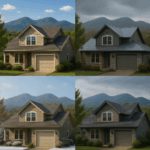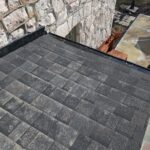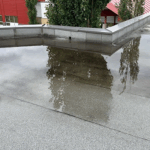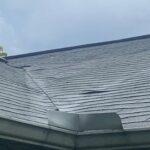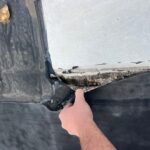When Roofing, What Is a Square?
Roofing is a critical aspect of home maintenance, protecting your home from the elements and adding to its overall value.
If you’re embarking on a roofing project in Asheville, NC, or anywhere in the U.S., you may come across the term “a square” in discussions about materials and costs. But what is a square in roofing, and why is it so essential?
This guide will demystify the concept of a roofing square, explain its importance, and provide you with actionable insights, backed by data and expert advice.
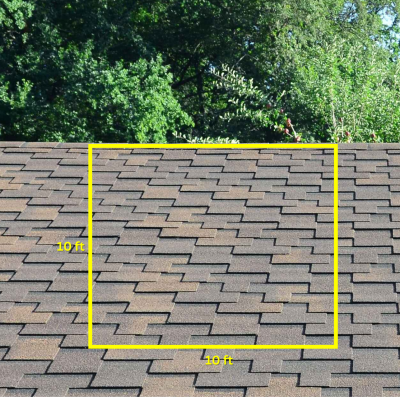
What Is a Square in Roofing?
In roofing terminology, a square refers to 100 square feet of roof surface. It is the standard unit of measurement used by Asheville roofing contractors to estimate materials, labor, and costs.
For example, if your roof measures 2,000 square feet, it equals 20 squares. Understanding what a square is allows you to interpret estimates and compare quotes effectively.
The Importance of a Roofing Square
The roofing square is vital for:
Material Estimation: It determines how much material, like shingles or metal panels, is required for the project.
Labor Costs: Labor is typically priced per square, so it helps estimate expenses accurately.
Budget Planning: Homeowners can calculate and compare roofing costs with precision.
Common Roof Repairs and Costs
Roof repairs are typically calculated by the square or per hour. Below is a chart outlining common roofing issues and average costs:
| Type of Repair | Cost per Square | Typical Price Range |
|---|---|---|
| Shingle Replacement | $100 - $300 | $300 - $1,000 |
| Leak Repair | $150 - $500 | $400 - $1,200 |
| Flashing Repair | $200 - $400 | $400 - $1,500 |
| Gutter Replacement | $200 - $500 | $1,000 - $2,500 (full system) |
| Ridge Vent Replacement | $250 - $750 | $500 - $1,500 |
How Are Roofing Squares Calculated?
Roofers use precise methods to calculate the number of squares on your roof. This includes:
1. Measuring Roof Dimensions: Roofers measure the length and width of each roof section.
2. Adjusting for Roof Pitch: Roof pitch, or slope, affects the surface area. A steeper roof requires more materials.
3. Dividing Total Area by 100: The total roof area in square feet is divided by 100 to determine the number of squares.
For instance, a gable roof measuring 40 feet by 50 feet with a moderate pitch equals:
– Roof Area: 40 x 50 = 2,000 square feet
– Squares: 2,000 ÷ 100 = 20 squares
Factors Influencing Roofing Costs in Asheville, NC
In Asheville, several local factors can influence roofing costs:
– Weather Conditions: Asheville experiences all four seasons, making roof durability essential.
– Local Labor Rates: According to the U.S. Bureau of Labor Statistics, construction labor costs in Asheville are slightly above the national average.
– Material Transportation: Proximity to suppliers affects the price of materials.
Asheville Roofing Company Spotlight
For homeowners in Asheville, NC, choosing a reliable roofing contractor is crucial. Local companies bring the added advantage of familiarity with the area’s weather and building codes. Here are a few tips when selecting a roofing contractor:
– Look for contractors with extensive experience in the region.
– Verify their certifications and insurance coverage.
– Read reviews and request references from past clients.
FAQs About Roofing Squares
A square is a measurement equal to 100 square feet of roof surface.
Measure the roof's dimensions, adjust for pitch, and divide the total area by 100.
A roofing square typically includes materials for 100 square feet, excluding waste.
Costs vary by material but range from $100 for basic shingles to $1,200 or more for slate.
Squares simplify calculations for large roof areas and standardize pricing.
Most roofing squares require three bundles of shingles.
Steeper roofs require more squares due to increased surface area.
Yes, materials like shingles are often sold by the square.
Yes, it applies universally, though calculations may vary for unique shapes.
It depends on material and complexity but typically takes 1-2 hours per square.
Roofing Squares Summarized
Understanding what a square is in roofing equips you to plan your roofing project with confidence. Whether you’re tackling a repair or a full roof replacement, this knowledge ensures transparency and accurate cost management.
For Asheville homeowners, investing in roofing maintenance is more than a necessity—it’s a way to protect your home and increase its value. Partnering with a reputable local roofing company ensures you get the best materials, workmanship, and guidance for your investment.

